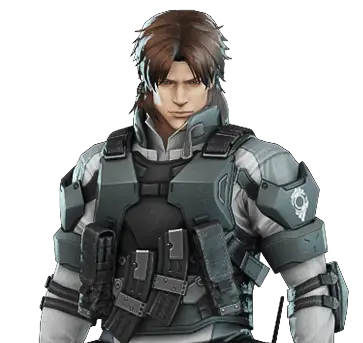I’m politically agnostic and have moved from a slightly conservative stance to a vastly more progressive stance (european). i still dont get the more niche things like tankies and anarchists at this point but I would like to, without spending 10 hours reading endless manifests (which do have merit, no doubt, but still).
Can someone explain to me why anarchy isnt the guy (or gal, or gang, or entity) with the bigger stick making the rules?
Anarchism understood as a proper model and not just “chaos” is about horizontal and distributed power structures.
The whole idea is that no single person or group has a monopoly on power. Now if you are asking how do anarchist societies prevent people or groups like that from rising up and forming monopolies of power, there are a bunch of different answers. Ultimately it’s about collective action and proper structure.
If your organization’s rules allow for a single person to rise up and take over, it isn’t formed correctly. It’s like the Fediverse, no one server or person gets to make the rules for all the other servers or developers.
Everything is federated by the choice of the instances and ultimately the users. If they don’t agree with how any instance is being run, they can start their own and run it how they want, federating with who they want assuming it is mutual.
Anybody can fork the project at any time, build it different, start a new instance, run it how they want, etc.
You build into your society, mechanisms that resist monopolies of power. It’s like how your body’s immune system has layers of protection against all kinds of germs.
Another example, in typical small company the structure is top-down with the owner usually being a single person with universal power over all their employees. They can hire and fire whoever they want whenever they want. They can shut down the company or change how any part of it operates whenever they want. Nothing in that company structure protects the employees from abuse by the owner.
There is no magic bullet to protect against everything, just like how your body despite being healthy and strong can still succumb to cancer, infection, poison, etc. That isn’t a reason to just give up on being fit and healthy, because it is about improving your odds and trying to make your life on the average better.
I was going to engage in some debate with this, but after your last paragraph I no longer find it necessary.
It illustrates one of the nastier, but also more important of life lessons. No system or even choice is going to be without its own flaws and vulnerabilities, they’ll just be different ones from system to system. So, it’s less about any one system being “right”, or even just “better”, but instead “appropriate to the circumstances/environment/goals”.
Once you acknowledge this, it becomes a lot harder to passionately defend any particular system, because you’re no longer as eager to ignore its own unique vulnerabilities. I believe deeply in democracy and freedom of information for instance, but I cannot bring myself to ignore that it creates a vulnerability for us that someone like Xi Jinping, with his powerful control over the local information space, simply does not experience.
Authoritarian systems, on the other hand, have to deal with the very basic fact that there is nothing divine or magical about that man on top, he’s as human as the rest of us. So, if you get rid of him, you may be able to take and keep his job. Where in a democracy you’d just have to face re-election within a few years.
Pros and cons, always, with pretty much everything. Then the next most important consideration imo is simply scale. Some systems work very well within very small scales, say, a small family. But when scaling these systems up, it can change the circumstances enough that their value changes.
To illustrate this I always like to use littering a banana peel. If just one person litters a banana peel, it is largely harmless. If, however, a million people litter banana peels all in one spot, you can actually create a potential problem where one did not exist before. Scaling the behavior up changes how we need to think about it. This has a lot of ramifications for business in the modern world, where scale is usually desirable. Also feeds into many civil engineering problems.
I think it is important to add that even though no system is perfect and every system has it’s pros and cons, that doesn’t make them equal. As soon as we define goals, for example equal rights, some systems will be better equipped at achieving those while others might be actively hostile to them.
I don’t think you’re saying anything contrary but I wanted to make one point clear.
The democracy we live under is not unique to capitalism. In fact, our current system has less democracy than an anarchist system would. Also capitalism doesn’t have any requirement to be democratic. Whereas with anarchism, any dictatorship is directly against the core tenets of the system.
That being said, (I have not read enough theory to know for sure but) anarchism doesn’t necessarily preclude the idea of having managers or even CEO’s. It does preclude those positions having total power and control of an enterprise though. Dismantling the hierarchical structure of modern society doesn’t mean having someone be a coordinator of a larger group isn’t helpful. It just means that job isn’t given greater power or more significance than those being coordinated. Our current idea of a CEO is very dictatorial, but that’s not how it has to be.
deleted by creator
Every now and then Lemmy has an actual discussion like this that gives me hope that it can become more than just an idiotic link aggregator. Thanks!
Because no one knows anything whatsoever about actual anarchist political theory.
Largely due to it being heavily suppressed and propagandized against by States, capitalist or ‘Communist’, and their adherents.
Anarchy as thought of by the wide and vast majority of people is simply a state of chaos and violence with no clear rulers.
What Anarchy actually is is fairly simple.
Root words derive from Greek.
An- Prefix: Without
Archon: Tyrant/Cruel and Ruthless Ruler/Undefiable Authority
Non insane Anarchists are always critics of the state, corporate structures of organizing the work place, most forms of organized religion, oppressive social norms and anything that creates and maintains any kind of hierarchy in society that results in oppression, impoverishment or cruelty to any particular group of people for illegitimate reasons.
Anarchy is essentially very similar in many ways to communism as Marx envisioned it, in that it is an idealized, as yet not perfectly defined goal of a just, egalitarian and democratic society that heavily emphasizes people being adequately represented economically in their daily lives as workers, as opposed to the standard liberal capitalist model where your boss essentially has authoritarian power over you in the workplace.
Both Marxism and Anarchism are highly critical of the profit motive and the ability of a very small number of people to own all or much of the capital (means of production such as factories) of a society, for very lengthy and detailed reasons.
A very common misunderstanding is what is truly meant by ‘private property’: most people unfamiliar with Marxism or Anarchism believe that Marxists and Anarchists believe that no one should be allowed to singly, individually own /anything/.
This is false. While many different adherents have different precise definitions, generally speaking private possessions are just fine until they get to the point of owning something directly and singly that has a massive impact on the lives of others should you choose to unilateraly use your ‘property rights’ in a way that is beneficial to you personally, but harmful to a large number of other people.
Further, Marxists and Anarchists both generally agree that ‘property rights’ as we currently conceive of them really only functionally exist for the rich and powerful, and are enforced via the power of the state.
Anarchism significantly differs from many later Marxist derived theories such as Leninism, Stalinism and Maoism that generally emphasize that in order to actually achieve an ideal, non capitalist society, one must create a massive state structure (or subvert an existing one) and place all power to reorganize a capitalist economy into a class of totalitarian economic organizers and planners, and that during this process the state is entirely justified in basically any means of crushing dissent it deems necessary.
This is of course heinous to Anarchists, who view a totalitarian state as essentially criminal.
What modern Anarchists, who are, again, not insane, usually support are working both within and outside of existing norms and government structures to meaningfully improve peoples lives amd expand their rights:
Mutual Aid: Direct Involvement in you local community to feed the hungry, house the unhoused, provide aid to the sick and displaced.
Advocacy: Doing what you can to promote ideas and views that will be beneficial to the masses, or to protect at risk minorities, both within existing formal societal structures like governments and businesses, and also within society generally.
Many modern Anarchists are also very concerned about the power if states and corporations to abuse the environment and curtail freedom of expression.
Anarchy also has another useful definition in the context of a world of nation-states:
Anarchy is that same common understanding of a world without rules and chaos, but the realization that this simply describes our current world given the history of actions of and between nation states, who often engage in many harmful acts against other nation-states and their populations, and rarely actually follow any rules or norms which are supposed, but i actuality rarely do, govern affairs between states. States will often do whatever they believe they can get away with that will benefit themselves, even if it means massively harming another state or group of people.
Finally, if you want to also be a modern technologically savvy anarchist, aka a cyberpunk, you can realize that the advent of computer and digital technology means there no longer exist any actually valid reasons, in very many cases, to actually pay for software, and that you should be an advocate of open source software.
So, in summary, Anarchy is not a state of chaos, without rules.
It is a very complex and nuanced political theory of advocacy for a more equitable and more just society.
No serious Anarchist believes that the world would be better if everyone was free to rum around and do literally whatever they want on an individual scale.
What exact kind of society do they propose?
Well unfortunately that differs wildly from Anarchist to Anarchist, but again, as with how Marxist socialism is but a /process/ of transforming from a capitalist society into an as of yet not perfectly defined communism, Anarchism is a /process/ and /method of analysis/ of how to transform into a better society for everyone.
Well, crud. I guess I am much more on the side of anarchists than I thought…
A lot of people are. We have bad press, partly our fault and partly because we’re dangerous to systems of power and those who benefit from them. The cultural idea of power doesn’t mind if everyone swaps places or if things get turned upside down. The framework of thinking persists, everyone in the system understands it. It’s easy. Destroying it though, that means basically everyone has to unlearn a lot. It demands we see the beggar and the ceo as equals influenced by their situation and circumstances.
But also I think one thing to understand that a lot of people don’t is that there’s folks I’d call optimist anarchists, and folks I’d call pessimist anarchists. Optimist anarchists believe that we as people can build a better world together because people tend to want to help people and abolishing hierarchy is the best way to enable that. Pessimist anarchists believe that power tends to fuck with your head and make you a worse person. To them abolishing hierarchy may not result in a good situation, but rather that allowing hierarchy is too high risk. The optimist may say that a benevolent dictator isn’t as good for society as a benevolent society of equals. The pessimist would say that a benevolent dictator is rare at best and highly unlikely to keep happening.
Because the moment anarchy starts making rules, it’s no longer anarchy.
Anarchy is not the absence of rules but the absence of authority.
And without authority to back up the rules- the rules are easily dismissed without consequence. And easily dismissed rules with no consequence is anarchy.
Therefore- rules negate anarchy.
Anarchists tend to think that fear of the state is not the main reason why we don’t murder each other. In other words, following rules that are understood does not require the stick. Anarchists also tend to think that authority mostly enforce rules to maintain itself, and that the common good actually relies on something else.
How does an anarchy society enforce the rules? Say, murders.
Let’s say you risk nothing if you murder. Would you start right away going on a killing spree ? Chances you think “I won’t but others will” and others actually think the same. An anarchist would probably analyse this by saying that destroying trust between indivuals living together is a basic tool power use to justify its domination. A pedantic anarchist would get his Latin out at this point. Divide et impera.
You misunderstood my question. I did not mean to ask why there would be no murderers. My question is this:
- If anarchism is not against rules but rather authority, how would you deal with murderers? If there is no authority to sentence them, would they remain free individuals?
Anarchists usually think that a lot of murderers actually get away with it in our actual world, be it through war crimes, neglecting sanitary or safety rules to maximise profit; you can extend this list with a lot of legal murders.
Anarchism definitely does not define a specific rule for what to do with murderers. Different communities might want to handle that differently. They usually think that prison does not solve anything though, and that only the poor get sent there anyway.
I think a mistake is to think that anarchism is a “feature-complete” view of the world, when it really is the realisation that power corrupts, and that we should keep this in mind when organising ourselves. Arguably, over the long run, anarchist views are winning: institutions that prevent - in theory - crazy psychopath from taking absolute power, churches losing power over our lives, women considered as human beings; these are things anarchists have pushed for, for 2 centuries. This short essay might give you more insight: https://theanarchistlibrary.org/library/david-graeber-are-you-an-anarchist-the-answer-may-surprise-you







